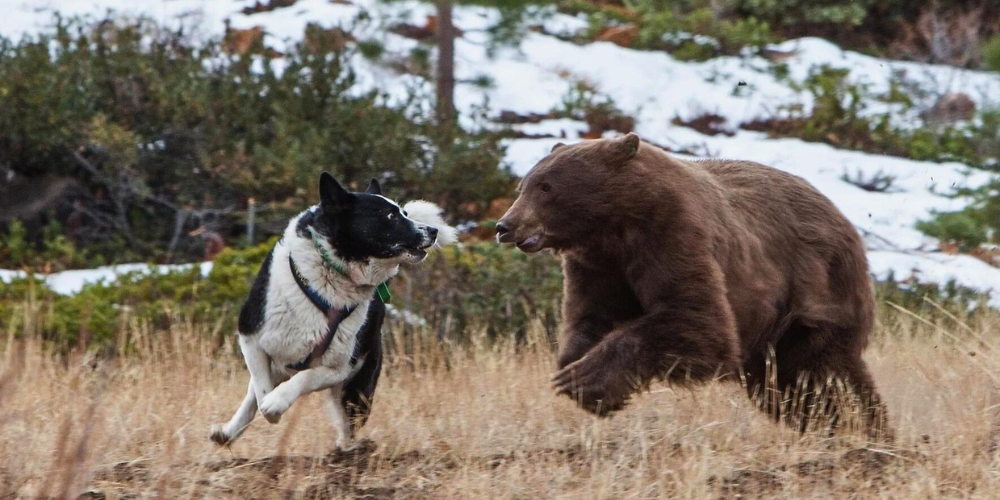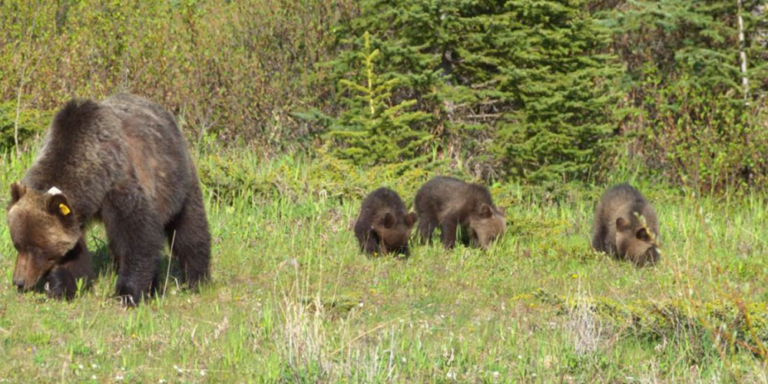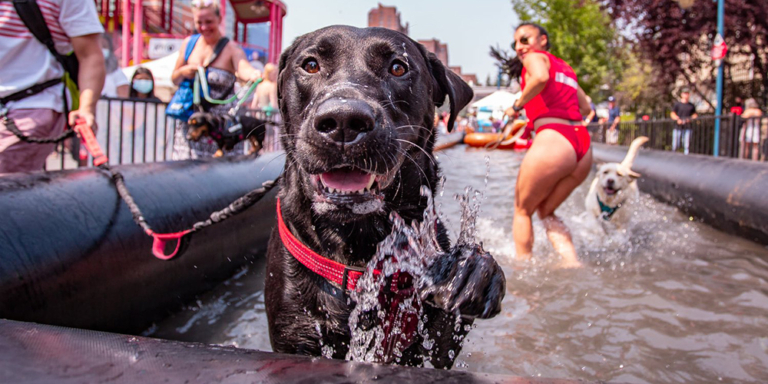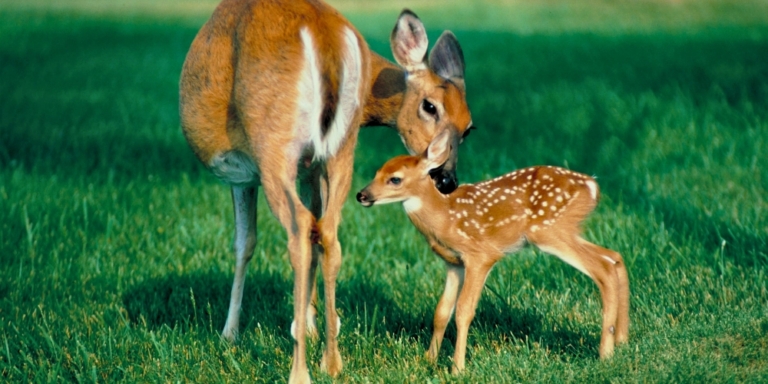Cochrane resident Craig Campbell enjoys going on morning walks with his dog, a 10-year-old Doberman named Night.
But after a close call with a grizzly bear earlier this month, Campbell said he’d seen enough grizzlies for a while.
Campbell and Night were walking about 10 kilometres from their home near Heritage Hills at around 10:30 AM when Campell spotted two large cubs and a bear.
At first glance, he didn’t think the bears were grizzlies since they were uncommon in the area.
He changed his mind faster than a tire during an F1 pit stop when a mother grizzly came charging at him from the trees.
“I had my pepper spray on my belt but had to lift my jacket to get at it and was convinced I wouldn’t be able to use it in time. So I thought, this can’t be happening. I am going to die,” Campbell told the Cochrane Eagle.
As Campbell’s life flashed before his eyes, Night jumped into action. The courageous dog charged at the grizzly bear.
In a game of chicken, the dog and the bear met face-to-face on opposite sides of a barbed wire fence just a foot apart from each other. The grizzly stood on its hind legs and appeared to be seven feet tall according to Campbell.
Campbell managed to ready his bear spray, but it wasn’t needed. The mother grizzly returned to her cubs, and Campbell and Night lived to see another day.
Whew!
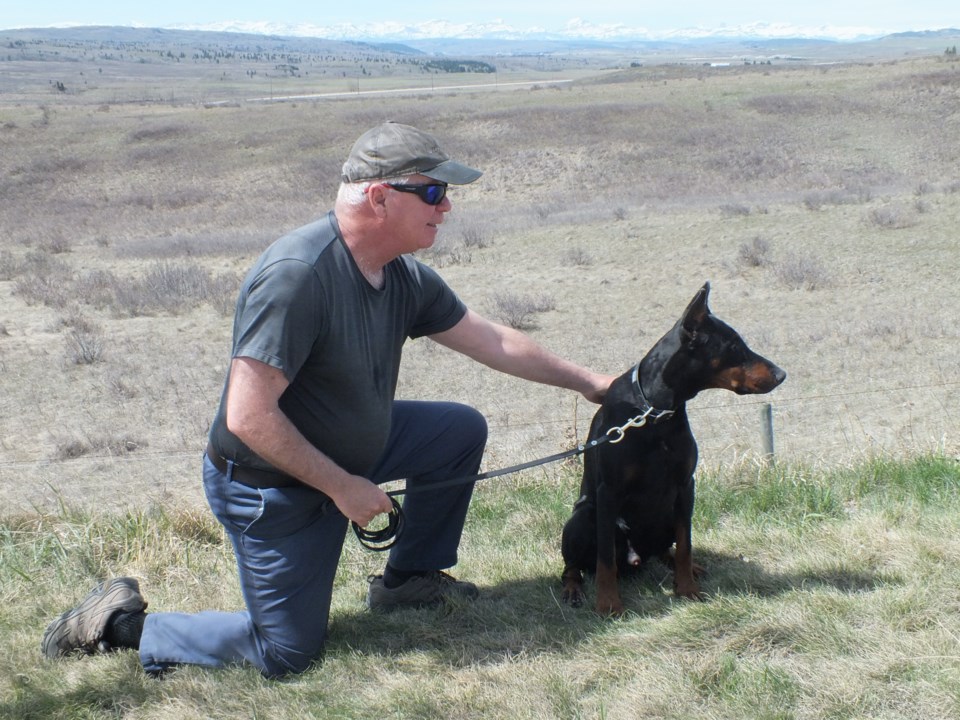

A Not So Unlikely Encounter
Bears are usually out of hibernation from early April through November.
However, Banff’s famous grizzly bear No. 122, better known as The Boss, left his den early this year on March 18.
Female bears with cubs tend to leave their dens later than the males, emerging around late April to early May. Females have their paws full, finding food and protecting their offspring from dominant males.
Dominant males will kill bear cubs for a few reasons, including something as simple as scoring an easy meal.
One of the most accepted explanations suggests that dominant males will kill cubs to reset a mother’s mating cycle to breed with them.
The mother bear Campbell encountered probably left its den with its cubs recently and chose to use a habitat closer to humans to avoid dominant males that would threaten her young.
It is also possible that the mother and her cubs are following a local elk herd to prey on the calves when elk calving begins in mid-May to early July.
Elk are an important protein source for bears, but berries and vegetation make up 80 percent of the animal’s diet.
Until elk start calving, hungry bears forage for early-season food sources. According to the Biosphere Institute of the Bow Valley, fresh shoots of horsetail are all the rage right now.
Plus, dandelions, also a favourite of bears, are currently sprouting like mad at lower elevations and are common around the Cochrane area.
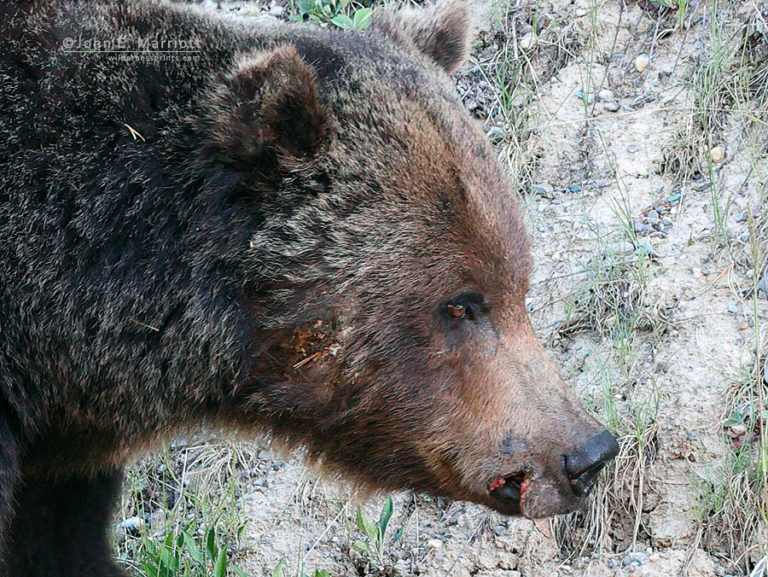

A Lesson To Be Learned
Night’s quick thinking and courageous actions were nothing short of heroic. However, it is important to remember that dogs are more likely to instigate unwanted bear encounters than prevent them.
“The dog will go after the bear, become frightened, then run back at you, bringing the bear with it,” said Dave Klepacki, Executive Director of the Bragg Creek Environmental Coalition.
According to bear attack researcher and retired University of Calgary professor Stephen Herrero, many bear attacks in North America involve dogs.
“Most dogs, when they are around bears, aren’t exactly under control. If they are not on a leash, it takes a really well-trained dog to keep it from going after a bear,” Herrero told CBC News.
Herrero examined more than 90 bear attacks between 2010 and 2014 and found that more than half involved dogs and that many were caused by dogs.
Last year, a couple and their dog were killed by a grizzly bear in the backcountry of Banff National Park. Parks Canada claims the couple did everything right to avoid a bear encounter.
They hung their food properly, were carrying bear spray, and camped in a location where there were no active bear warnings or area closures.
Colleen Cassady St. Clair, a biological sciences professor at the University of Alberta, believes the bear attack was likely predatory, meaning the bear saw the couple and their dog as prey.
It is unknown whether their dog was involved in provoking the attack, but evidence suggests that the bear involved was old, malnourished, and likely desperate for food.
Dogs should always be on a leash in bear country.
However, experts suggest that pet owners should go one step further and leave their dogs at home.
Thankfully, Campbell’s terrifying encounter did not end in tragedy, although he’s probably had his fill of grizzly encounters for a lifetime.
Night, the hero in this case, made no comment.



